A new exhibition in London will explore the untold history of the Indo-Caribbean community, its curator has said, as she hoped the display would become a starting point for people to learn and research further.
As a part of its 20th anniversary, the Museum of London Docklands will this weekend open a display titled Indo + Caribbean: The creation of a culture in its London, Sugar and Slavery gallery.
Speaking to Eastern Eye, curator Shereen Lafhaj explained how she aims to explore the lesser-known history of Indian indentured laborers in the British Caribbean and also shed light on London’s Indo-Caribbean community today.
“It's a pretty substantial number and a huge part of history that a lot of us don’t know about,” Lafhaj said.
“This part of history and community has not had the attention it deserves. It's a well-known history within the communities directly impacted by it, but not everyone is familiar with it, particularly in Britain. It's not on the curriculum.”
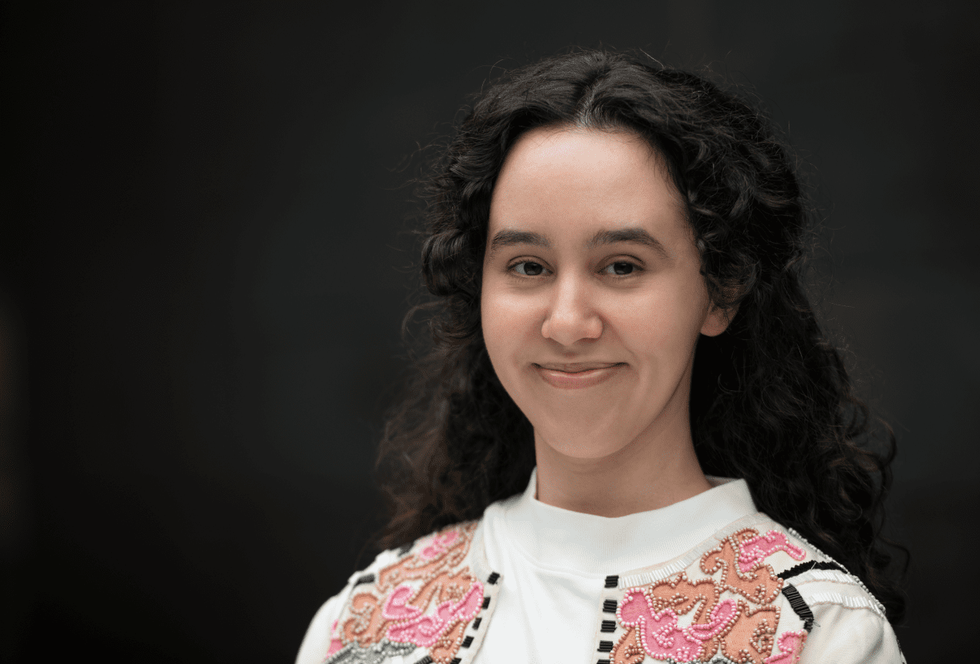
Following the Slavery Abolition Act of 1833, British planters in the Caribbean - in search of cheap labour - are said to have recruited a large number of workers from India, engaging them in contracts of three to five years in return for transport, a minimal wage and some basic provisions. Between 1838 and 1917, around 450,000 Indians undertook long and difficult journey to the British Caribbean.
Lafhaj said, “One thing that is fairly clear here is that it was a horrible and difficult experience working on these plantations. It was back breaking work - cutting sugar cane with cutlasses in the sun, spreading manure and so on.
“We also know children as young as 10 were employed in this work as indentured labour.”
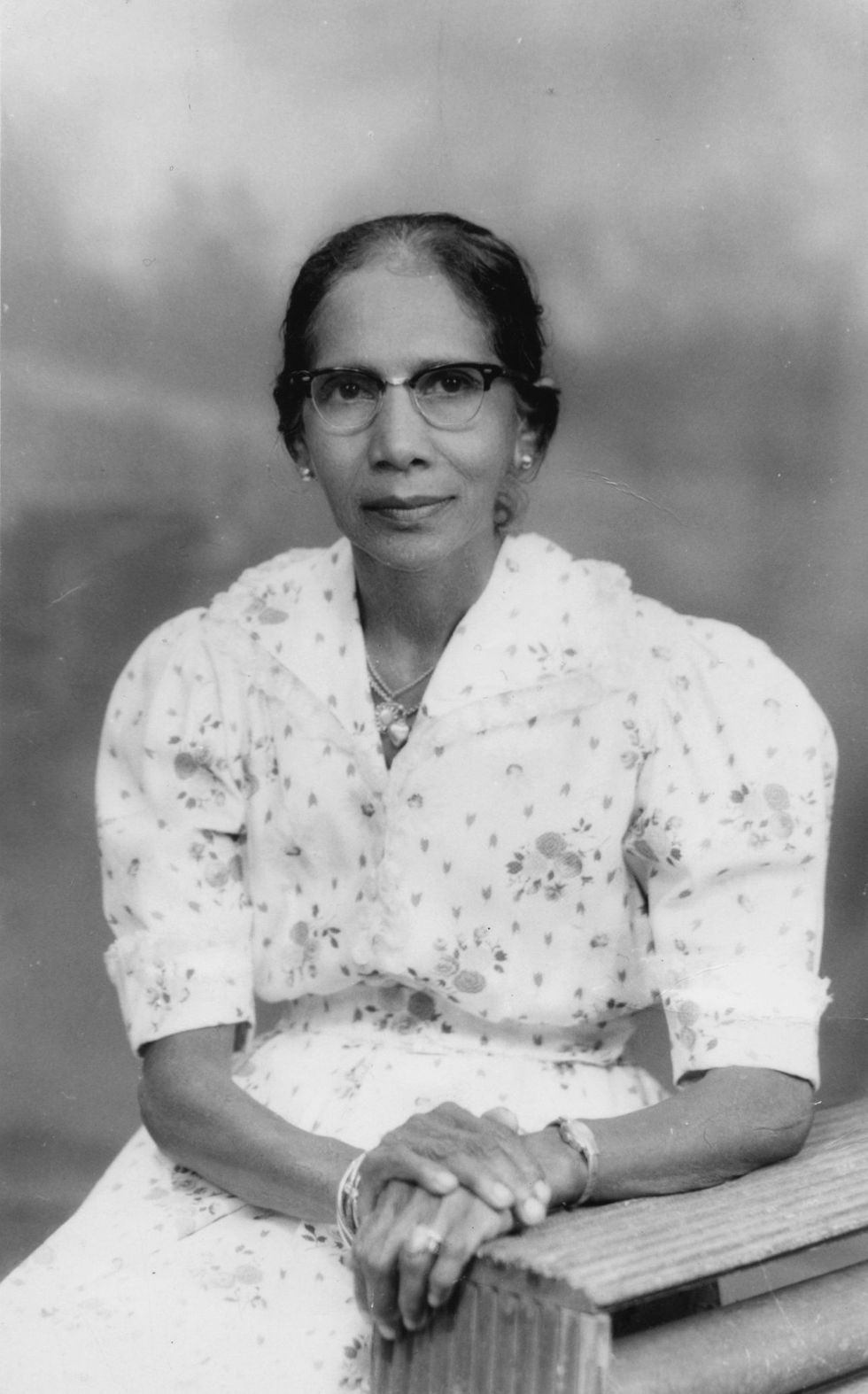
The exhibition will mainly explore the transition between enslaved African labour and the start of Indian indenture; the journey from India to the Caribbean for such workers; life in the Caribbean for indentured labourers, and Indo-Caribbean Londoners today.
It will also explore migration and later life in the UK, drawing on personal stories of London’s Indo-Caribbean community. Lafhaj said, “It’s not just about history, but also about modern community and people around you. These people are part of the fabric of our society - it's a great insight into other members of the community.”
Many indentured Indian labour came from the eastern state of Bihar, research showed.
Lafhaj said, “We have an academic partner on this display, Dr Saurabh Mishra, who is also a senior lecturer in history at the University of Sheffield. He was involved in making sure the display is historically accurate. Since he himself has roots in Bihar, he was able to give us a lot of great insight into this state and how migration from the state has actually been a factor throughout its existence.
“We have a little takeaway booklet for visitors in which he has added extra stories about indenture that we couldn't quite fit into the display.”
Lafhaj noted that one of the arguments often made is that those who were running the plantations “had the same mindset” of slave lords even when they hired indentured labour from India.
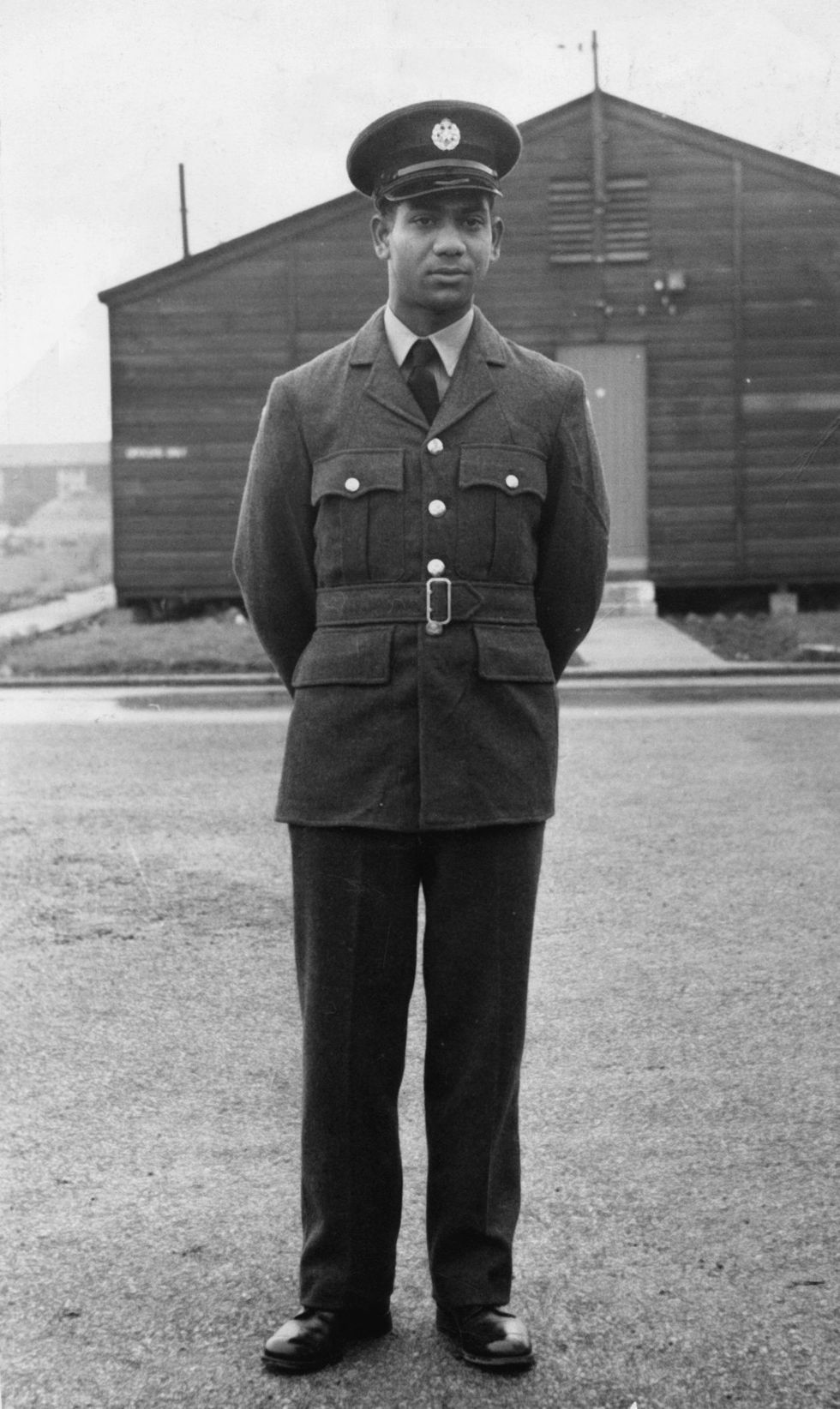
On display are a range of archival objects, including a logbook from a shipping company that operated several ships for transporting Indian workers between India and the Caribbean.
“We have their log, in which one can see all the details they recorded of these journeys. It shows the number of Indians onboard the ship and how they refer to them. We have personal items that the descendants possess from their own family collections,” the curator said. “We also have really great imagery - postcards from the around the turn of the century, depicting life in the Caribbean, films, photographs, archival objects and loads of interesting stuff.”
Many such Indians went to other parts of the world as well during this time, but this display focuses mainly on the British Caribbean history.
Putting together the display was exhaustive in itself. Lafhaj and her team began in August last year, carrying out research from the start since the museum “did not have any indenture experts” unlike experts in other subjects.
“It's a fascinating topic to research, because, actually, academia on this subject is fairly recent. The history itself is fairly recent. Despite that, the stories seem to have been told mostly through generations in families, implying there's a wealth of resources out there that are kind of untapped,“ Lafhaj said.
“We visited different archives that have tons of things on indenture. Probably a lot of it is still yet to be explored, which is really interesting.
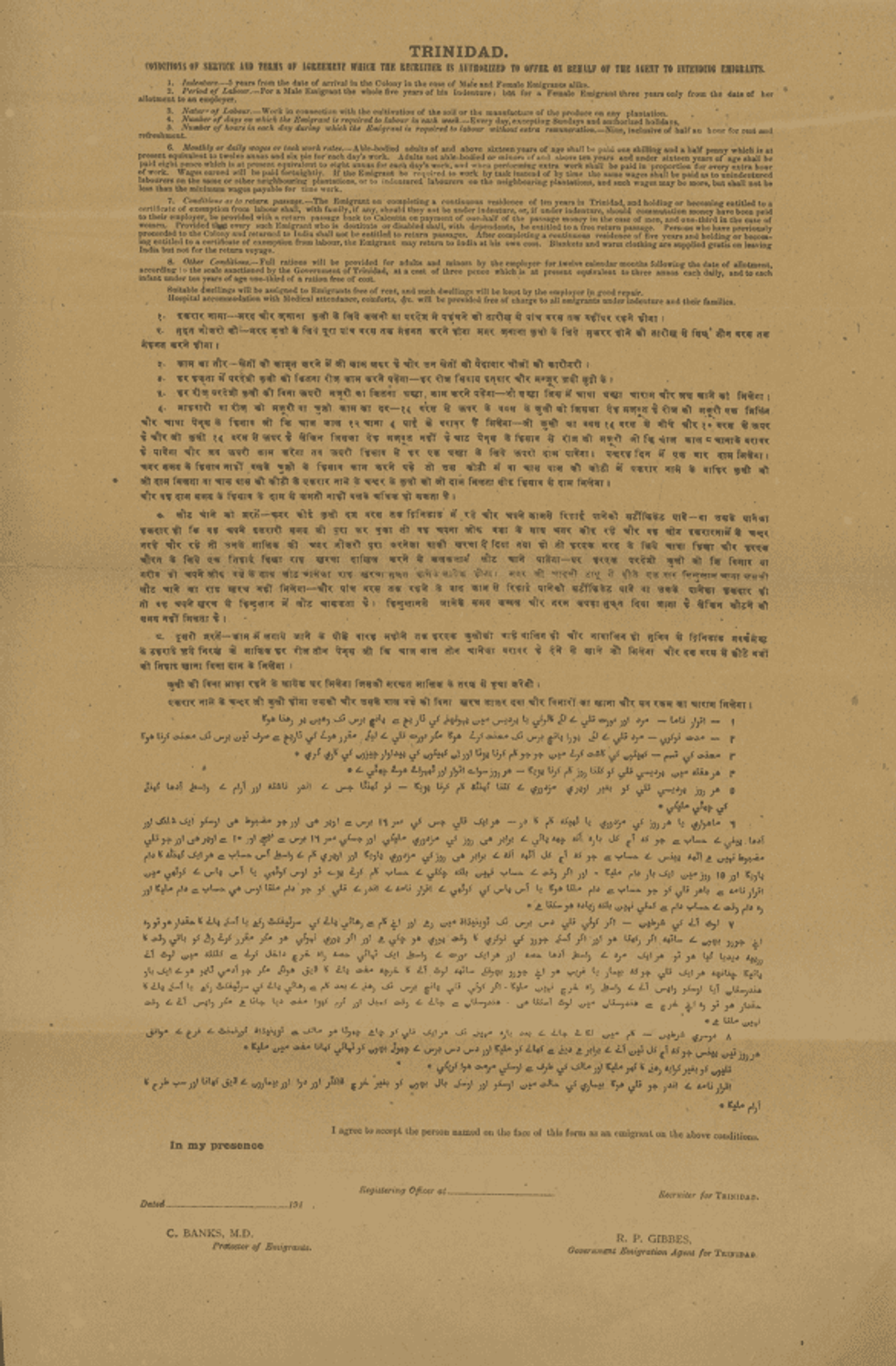
“Even in our own collection at Museum of London, we found items related to this story. We also spoke to Londoners of Indo-Caribbean descent. A part of our display is a section on the community in London today.
“We ran an initial consultation with members of Kuli Dhal Puri for the display, part of the Black African and Asian Therapy Network (BAATN). Three members of the Indo-Caribbean community in London contributed several objects and insights from their family history to the display,“ she said.
“Our community partners, Londoners of Indo-Caribbean descent, have also contributed to a film that is on display, in which they talk about their identity and family histories and what it means to be Indo-Caribbean descent as well as a Londoner.”
Lafhaj revealed the account of one of the partners whose father, while applying for jobs in the UK, was repeatedly told he should put his name forward for lower-level jobs even though he was more than qualified. There are stories of racism and difficulties, but at the same time, the exhibition also shows the resilience of this community and what they built in Britain, the curator said.
“We are still discovering so much about this history, and we hope this display becomes a starting point for people to learn and research further.”
Born and raised in west London, Lafhaj comes from a mixed heritage background. A history buff, she said she was interested in themes of migration and identity. “I've always been interested in those topics, and the fact that everyone has unique stories,” she said.
Lafhaj studied history at university, followed by a master's in transnational studies. Post college, she did voluntary work and got a job at the Migration Museum.
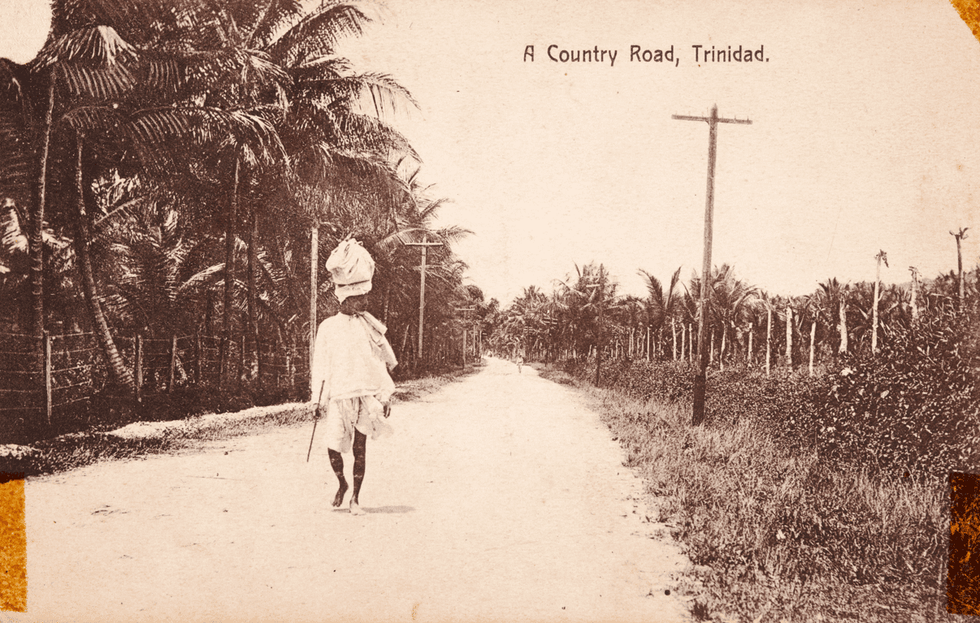
During the pandemic, she co-curated a digital exhibition looking at the migration history of the NHS. She now works with the Museum of London, and this is her first project as the lead curator.
“I'm not Asian. And that was something I've been very aware of throughout this display - that I'm an outsider telling this story. It's been insightful to learn more about this history and talk to Indo-Caribbean Londoners about their identity,” she told Eastern Eye.
“Representation, no matter what, is really important, and I hope the community continues to thrive and gets positive representation in different aspects.
“I hope this display will be a really great example of that and encourage further conversation and recognition of Indo Caribbean people and their place in history. We are really hoping people pay us a visit - in spite of and despite having a connection or knowledge of this community.”
Entry for visitors is free of charge; the exhibition will open on Friday (19) and run until November 19.


















